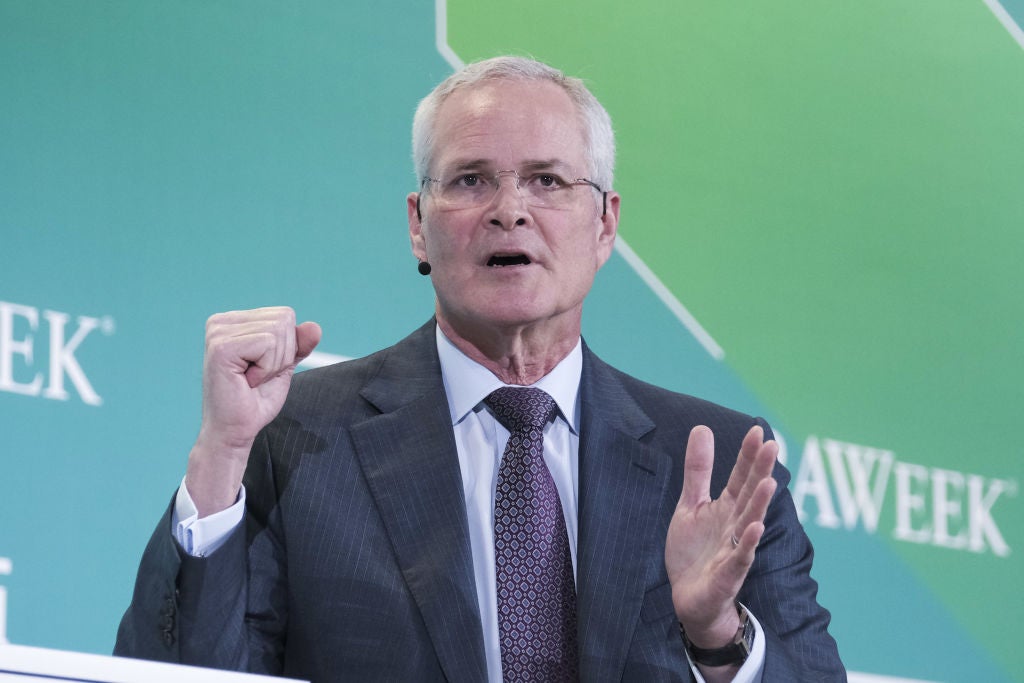
ExxonMobil CEO said on Tuesday that the oil giant is revaluating its European strategy due to the EU’s “punishing” measures to reduce oil and gas.
Darren Woods spoke at the CERAWeek conference in Houston, criticising European energy policy, notably windfall profit taxes.
He accused the EU of discouraging investment with energy transition developments. He claims that the bloc should continue to ensure oil supply to meet demand.
Following Russia’s invasion of Ukraine one year ago, Europe was met with energy shortages resulting in the need to burn coal. Woods claims that Europe still needs fossil fuels, claiming that “what we saw in Europe should be a wake-up call”.
The Inflation Reduction Act, signed by President Biden last year, incentivises investment in clean energy within the US. Exxon has already benefitted from the act, establishing a business that assists third parties with decarbonisation.
“I think you could maybe very simply describe it as carrots versus sticks”, Woods told the conference, using the metaphor to compare the US’s policy response to the EU’s. Exxon will adapt their European strategy favouring the US.
European majors BP, Eni, Equinor, Repsol, Shell and TotalEnergies have all put in place net zero emissions targets for the year 2050. To reach these, all have committed to expanding their renewable power business while increasing their offsetting and carbon efficiency. Meanwhile Exxon remains committed to an approach based solely on oil and gas.
“We saw in 2018, particularly with a lot of the climate emphasis, that people were pulling back from [oil and gas]”, he said. “We leaned in. We were heavily criticized for doing that at the time, but we recognized that, at some point, that supply was going to be needed.”
While Exxon’s commitment to oil and gas has been met with criticism from politicians and environmentalists, investors seem to approve of their strategy, with the company’s stock price rising 134% since the pandemic. This is nearly double the performance of its closest peer, Chevron.



